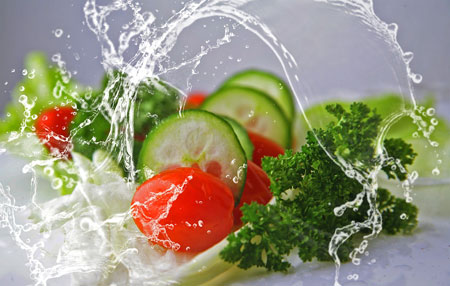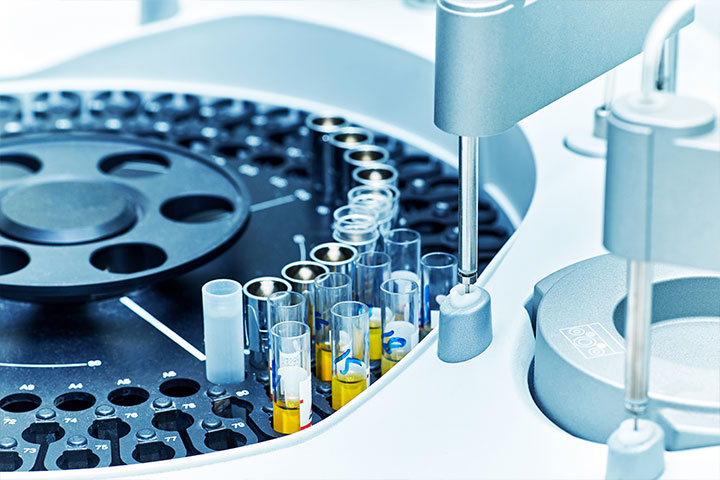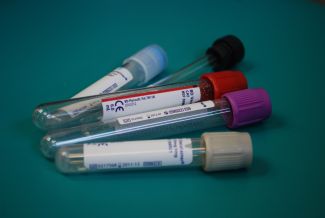
All food must have conformity assessment with the standards of the technical regulations of the EAEU before the import into the Eurasian Economic Union (EAEU), which consists of Russia, Belarus, Kazakhstan, Armenia, and Kyrgyzstan. The conformity assessment takes place in the form of a mandatory EAC Declaration or state registration. From February 15, 2015, all food must be declared and marked with the EAC conformity mark.
Legal framework
The relevant information on the conformity assessment of food for the EAEU is contained in the following regulations:
- Technical regulation TR CU 021/2011 On safety of food
- Technical regulation TR CU 022/2011 On food marking
- Technical regulation TR CU 023/2011 On juice and products containing vegetables and fruits
- Technical regulation TR CU 024/2011 On oilseed protein
- Technical regulation TR CU 027/2012 On safety of particular types of special foodstuff including dietic clinical and dietic protective nutrition
- Technical regulation TR CU 029/2013 On safety of food additives, flavour enhancer and processing accessories
- Technical regulation TR CU 033/2013 On safety of milk and milk products
- Technical regulation TR CU 034/2013 On safety of meat and meat products
- Technical regulation TR CU 040/2016 On safety of fish and fish products
The technical regulations set requirements for the production, storage, transport, labeling and disposal of food.
The goal is the protection of human life and health, the environment, as well as the bowing of deception of the buyer by misleading information. The foods must be safe during the minimum shelf life. The relevant limit values for food are laid down in the Annexes to the technical regulations. Disease germs and their toxins, which could endanger the health of humans and animals, are strictly prohibited in food. There are specific provisions for food made using the gene-modified organisms.
The compliance with the requirements of the Technical Regulations is the prerequisite for the import and sale of goods within the Eurasian Economic Union.
The manufacturer is responsible for:
- organization of the manufacturing process according to HACCP principles (Hazard Analysis and Critical Control Points)
- provision of detailed product description with all relevant information, including transport and storage requirements
- assurance of the safety of packaging
- product labelling with full and correct data
- execution of necessary quality checks
The technical regulation TR CU 021/2011 On food safety sets the following requirements, which must be complied with:
- microbiological standards according to the relevant technical regulations
- hygiene requirements
- content of radionuclide in the product
- animal health
- absence of parasites
Conformity assessment for food
There are several types of conformity assessment:
- EAC Declaration of food
- State registration of special food
- State registration of new types of food
- Veterinary and hygiene control
EAC Declaration
The EAC declaration is a manufacturer declaration that the products meet the minimum requirements of the technical regulation of the Eurasian Economic Union. An EAC declaration is prepared by the manufacturer or his authorized representative and registered with the notified body accredited in the EAEU.
The internal audit tests or test reports from a notified body may serve for the conformity assessment.
In addition to the EAC Declaration, one can voluntarily apply for a GOST R certificate. The voluntary GOST certificate is issued upon the applicant's own initiative. The voluntarily certified products may be marked with the certification mark. Any product can be certified according to GOST standards in order to convince customers of the quality of the products. The voluntary GOST R certificate then contains a reference to the EAC Declaration.
It is important to note that an EAC Declaration may only be applied for by a company established in the territory of the Customs Union, which is why an authorized representative from the EAEU is required. If you need an authorized representative, we will be pleased to offer you a suitable company that takes over this function.
State registration
Some food that is imported into the Customs Union territory for the first time is subject to state registration. It is mainly about special foods like
- food for children nutrition, including water
- products for dietary-therapeutic and dietary-preventive nutrition
- mineral water with a mineral content of more than 1 mg/dm3
- food for athletes, pregnant and lactating women
- biologically active additives
- new types of food
Moreover, the manufacturing plants which process products of animal origin are also subject to a state registration. These include:
- slaughter of animals and poultry
- processing of animal and poultry meat
- extraction of raw milk, raw milk cream and its processing
- manufacture of dairy products
- production and processing of eggs
- production and processing of aquacultures
The certificate of state registration proves the conformity assessment with the sanitary-hygienically regulations of the Customs Union. The Federal Service for the Consumer Protection and Consumer Rights (Rospotrebnadzor) is an authority that carries out certificates on state registration and evaluates the data on products.
Without the certificate of state registration, it is impossible to apply for an EAC Declaration, and thus to import the products into the territory of the Customs Union.
The certification bodies accredited by Rosstandart or Rospotrebnadzor are responsible for issuing certificates of state registration in Russia. The registration procedure includes an analysis of the manufacturer's documentation as well as laboratory tests and, in some cases, an inspection of the production. All certificates of state registration are entered in a special register and kept there.
State registration is also provided for new types of food. These are food that is produced according to new technologies, processes and new ingredients, which were not used before. They must be checked and registered before import.
Veterinary and hygiene control
Unprocessed food of animal origin is subject to veterinary and hygiene control. Processed foods of animal origin, on the other hand, are not subject to veterinary and hygiene control. In addition, one shall respect the rules of TR CU 034/2013 On the safety of meat and meat products and TR EAEU 040/2016 On the safety of fish and fish products.
Authorized representative
 The manufacturer, which is not based in one of the member states of the Eurasian Economic Union, is not entitled to request the conformity assessment of foodstuffs to comply with the requirements of the technical regulations.
The manufacturer, which is not based in one of the member states of the Eurasian Economic Union, is not entitled to request the conformity assessment of foodstuffs to comply with the requirements of the technical regulations.
In order to be able to carry out a conformity assessment, the foreign manufacturer must commission a authorized representative in one of the member states of the Eurasian Economic Union. This then represents the foreign manufacturer's interest in working with the certification bodies of the Eurasian Economic Union with regard to the safety and quality of products and compliance with technical regulations.
EAC conformity marking

Once the conformity assessment is carried out, the products must be marked with the EAC conformity mark. EAC is an abbreviation for Eurasian Conformity. The EAC label should be attached to each individual production unit, packaging or accompanying documentation.
Requirements for the EAC conformity marking:
- EAC marking must be easy to read with the naked eye
- dimensions are not less than 5 mm
- EAC marking should be monochrome and colour contrast to the surface
- EAC sign can be placed in any way that guarantees its legibility throughout the life of products
More information about important features of EAC conformity marking you can find in our article “EAC Conformity marking of Customs Union”.
Labelling
The technical regulation TR CU 022/2011 On food marking sets the requirements for food labeling.
The label shall be printed in Russian language or in the official language of the Member State of the Customs Union.
Requirements for the label
The label shall include the following information:
- designation
- ingredients
- weight
- date of production, packaging and maintenance
- storage conditions
- company name and address of the manufacturer, the authorized person or the importer
- restrictions on use
- nutritional values and calorific value
- information on GMO
- uniform EAC mark of the Eurasian Economic Union
The manufacturer must list on the label ingredients which may cause allergic reactions.
Packaging
The packaging must ensure safe storage of food. It must ensure the retention of characteristics during the storage, transport, and distribution of food. The precise requirements for filling and packaging food are contained in various technical regulations of the Eurasian Economic Union and must be complied with.
Identification of transport packaging
Each transport package must contain the following information:
- description of the goods
- amount
- manufacturing date
- shelf life
- storage conditions
- number, marks and numbers of the cargoes
- company name and address of the manufacturer
Sanctions on the import of food
In response to the European Union sanctions resulting from the Ukraine conflict, Russia has imposed an import ban on agricultural products and food from the European Union, the USA, Canada, Australia and Norway. Above all milk and milk products, fish, meat and meat products are affected. The products manufactured according to the technology of cheese production and products with a mass fraction of 1.5% or more milk fat have been added to the list.
Period of validity of EAC conformity assessment certificates
The validity period of the EAC certificate or EAC declaration for food differs depending on the applied technical regulations, the selected scheme, the type of production (serial production, individual delivery, etc.) and equipment and ranges on average from one to 5 years. Those parameters are determined in the respective technical regulation.
Duration and costs for EAC certification
The duration and costs associated with an EAC certificate application for food depend on several different factors, such as the classification of the product, any required laboratory checks and the complexity of all examinations. As such the exact conditions of the EAC certification are always determined individually based on the required documentation.
Please note that an application for an EAC certificate can takeseveral weeks to process.
Delivery of the documentation
If you order the EAC Certificate on food, you will receive a copy of it via email immediately after our successful certification procedure. The original document and two certified copies will be sent by post.



















































